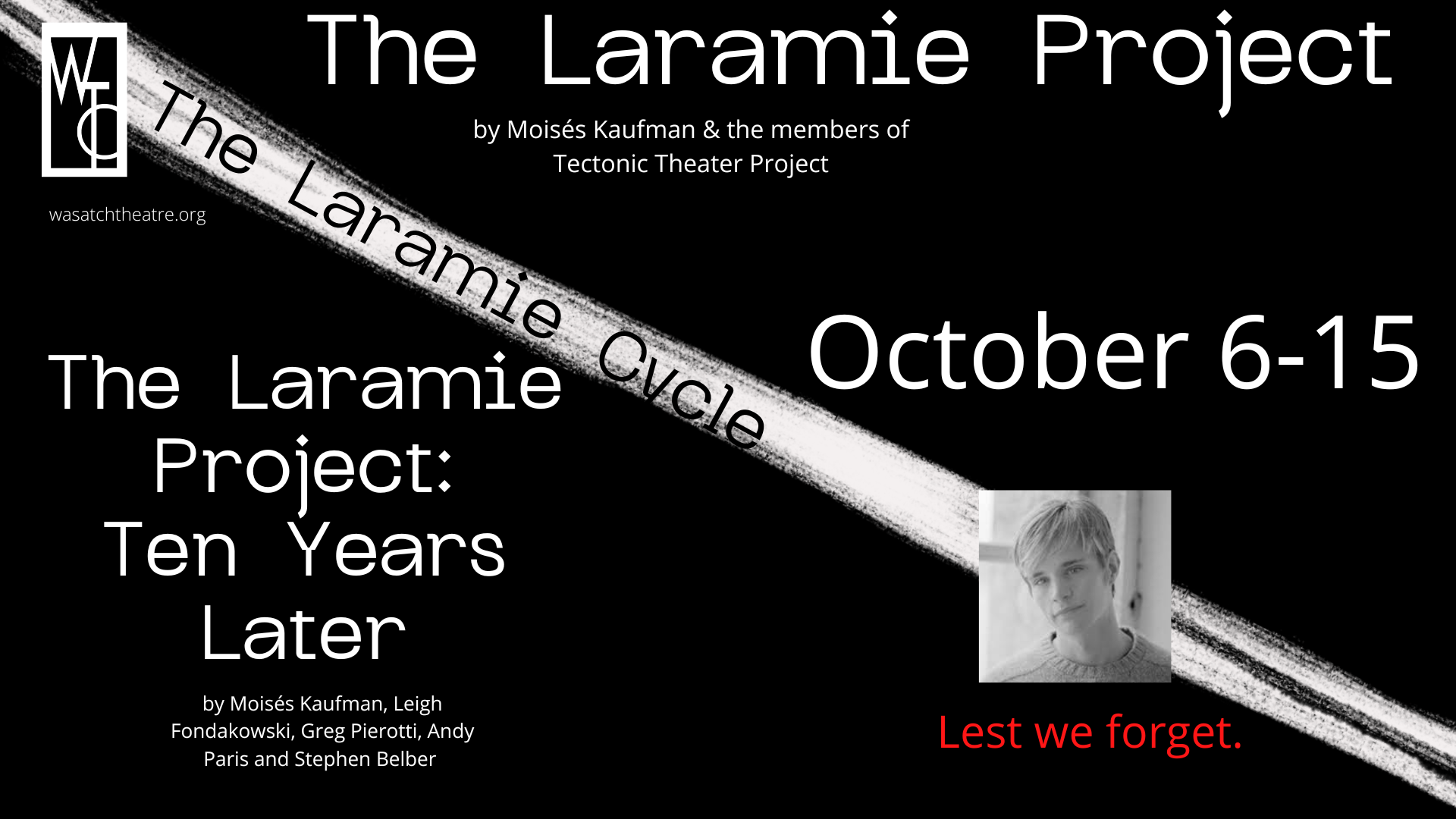
A Product of Our Society: The Laramie Project Comes to Utah
LGBTQ+
On a bleak autumn night in 1998, college student Matthew Sheppard was targeted, tortured and tied to a fence and left to die by local men in the small town of Laramie, Wyoming—an attack which would take his life and bring worldwide attention to the hateful treatment of LGBTQ+ lives in America. The factors that contributed to Sheppard’s murder are not uncommon in the proliferation of modern anti-gay sentiments and are dissected on political, spiritual and societal levels in the critically acclaimed stageplay, The Laramie Project.
This play is unique in the aspect that it is not just based off of a true story—the playwrights themselves did investigative field research, with quotes extracted directly from the locals who were mourning, judging, gathering and attempting to swallow how “this could happen here.” Playwright Moisés Kaufman and the Tectonic Theater Project conducted interviews the year after Sheppard’s murder, transforming the case study into a production that is as heartwarming as it is heartbreaking. The play shines as a documentation of a place, time and culture that cultivated a perspective which still permeates our present. On Oct. 6, I went to see The Laramie Project at the Mid-Valley Performing Arts Center, completely unaware that I would be visiting Matt, 24 years later, on the very night he was robbed of his life.
“The characters swung through the pendulum of the human experience with their funny, brash, fearful, enraged and forlorn dialogue.”
The play began with an overview of the facts of the crime, how the play came to fruition and a moment of silence for the deceased. At this moment I knew that a degree of emotional preparation was in order. The intentional minimalism of the set design contributed to a heightened sense of intimacy in the audience—the section from which we were silent voyeurs was level to the actors, the only stage props used were black chairs and the names of the scenes, usually a place setting or a quote from an interviewee, introduced in “Moments” projected onto the back wall. The simplicity and abrasiveness of the scene shifts reflected how many people processed the event, existing from one moment to the next.
The versatility of every actor in the production (Alex Ashe, Jack Bellows, Becky Davis, John Joslin, Brian Keith, Dalia Lechuga, Sonia Maritza, Sam Torres) was a key component to driving the nature of the story home with how they morphed into the next character within minutes, showcasing the stark contrast between the various moving parts colliding in the wake of tragedy. The characters swung through the pendulum of the human experience with their funny, brash, fearful, enraged and forlorn dialogue. Every performance was studied, digested and lived so thoroughly that the simple change of a hat or a scarf brought life to a completely different person.
One of the promiment players was Em Smiley, who performed as Romaine Patterson, an openly lesbian woman and Sheppard’s best friend who would go on to become an activist for the LGBTQ+ community with her “Angel Action” demonstrations (if you don’t know about this, I highly suggest looking it up) against those spewing hate under the guise of conservative Christianity. With wit and sincerity, Smiley channeled Romaine’s ferociousness and her unapologetic faith in doing what is right into every scene her character appeared in, while simultaneously performing as some of the prejudiced Laramie residents evasively justifying the attack due to Sheppard’s lifestyle. Abhi Harikumar performed the standout monologue of the production, reading the impassioned victims’ impact statement Dennis Sheppard gave verbatim as he granted mercy to his son’s killers, leaving not a single dry eye in sight.
“Watching the aftermath of Sheppard’s death stirs the audience to grasp at the collective responsibility to assemble care not just when tragedy happens, but as a measure to ensure acceptance as a human right.”
This play isn’t one where you will leave from the theater dancing, humming catchy tunes or with jokes to relay, but it is one that is all the more important for the incontestable reality of who we are and the truths we carry. Wyoming is a neighbor to the Beehive State, and Utah has its own history of prejudice against the LGBTQ+ community that is tangible and still occurring. While examining the roles each character played in the event that happened in 1998, it is important to examine the roles in which we play that hinder the identity, peace and autonomy of queer people today. Watching the aftermath of Sheppard’s death stirs the audience to grasp at the collective responsibility to assemble care not just when tragedy happens, but as a measure to ensure acceptance as a human right. Art that is created to challenge and move those who witness it on a personal level is crucial in order to lay siege to hate, so bring your friends, loved ones or, if anything else, an open mind to see The Laramie Project before the show ends this weekend.
“I think right now our most important teachers must be [the assailants]. They have to be our teachers. How did you learn? What did we as a society do to teach you that?”
The Laramie Project runs at the Mid-Valley Performing Arts Center Oct. 6–15 and is directed by Jim Martin and produced by WTC Studio 54. You can find tickets at saltlakecountyarts.org.
Read more from Ashton Ellis:
Punk, Prints and Poltergeists at Copper Palate Press
Joji w/ rei brown and SavageRealm @ UCCU Center 09.09